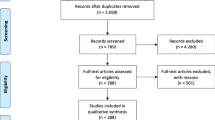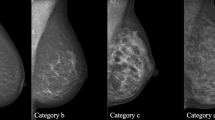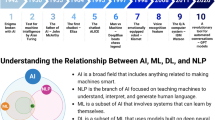Abstract
Accurate diagnosis of paediatric appendicitis remains a challenge due to its diverse clinical presentations and reliance on subjective assessments. The integration of artificial intelligence (AI) with an expert’s ‘‘clinical sense’’ has the potential to improve diagnostic accuracy. In this study, we aimed to evaluate the effectiveness of the Artificial Intelligence Pediatric Appendicitis Decision-tree (AiPAD) model in enhancing the diagnostic capabilities of trainees and compare their performance with that of an expert supervisor. Between March 2019 and October 2022, we included paediatric patients aged 0–12 years who were referred for suspected appendicitis. Trainees collected clinical findings using five predefined parameters before ordering any imaging studies. The AiPAD model, which was blinded to the surgical team, made predictions from the supervisor’s and trainees’ findings independently. The diagnosis verdicts of the supervisor and the trainees were statistically evaluated in comparison to the prediction of the AI model, taking into account the revealed correct diagnosis. A total of 136 cases were included, comprising 58 cases of acute appendicitis (AA) and 78 cases of non-appendicitis (NA). The supervisor’s correct verdict showed 91% accuracy compared to an average of 70% for trainees. However, if trainees were enabled with AiPAD, their accuracy would improve significantly to an average of 97%. Significantly, a strong association was observed between the expert’s clinical sense and the predictions generated by AiPAD.
Conclusion: The utilisation of the AiPAD model in diagnosing paediatric appendicitis has significant potential to improve trainees’ diagnostic accuracy, approaching the level of an expert supervisor. This hybrid approach combining AI and expert knowledge holds promise for enhancing diagnostic capabilities, reducing medical errors and improving patient outcomes.
What is Known: • Sharpening clinical judgement for pediatric appendicitis takes time and seasoned exposure. Traditional training leaves junior doctors yearning for a faster path to diagnostic mastery. | |
What is New: • AI-generated models unlock the secrets of expert intuition, crafting an explicit guide for juniors to rapidly elevate their diagnostic skills. This leapfrog advancement empowers young doctors, democratizing medical expertise and paving the way for brighter outcomes in clinical training. |

Similar content being viewed by others
Data availability
No datasets were generated or analysed during the current study.
References
Armstrong D (1977) Clinical sense and clinical science. Soc Sci Med (1967) 11(11–13):599–601. https://doi.org/10.1016/0037-7856(77)90041-5. ISSN: 0037–7856
Gordon DR (1988) Clinical science and clinical expertise: changing boundaries between art and science in medicine. In: Lock, M., Gordon, D. (eds) Culture, Illness and Healing. Biomed Examined 13. Springer, Dordrecht. https://doi.org/10.1007/978-94-009-2725-4_11
Shikha A, Kasem A (2022) The development and validation of artificial intelligence pediatric appendicitis decision-tree for children 0 to 12 years old. Eur J Pediatr Surg. https://doi.org/10.1055/a-1946-0157. Epub ahead of print. PMID: 36113502
Pascual-Leone A, Amedi A, Fregni F, Merabet LB (2005) The plastic human brain cortex. Annu Rev Neurosci 28:377–401. https://doi.org/10.1146/annurev.neuro.27.070203.144216. PMID: 16022601
Diekelmann S, Büchel C, Born J, Rasch B (2011) Labile or stable: opposing consequences for memory when reactivated during waking and sleep. Nat Neurosci 14(3):381–386. https://doi.org/10.1038/nn.2744. Epub 2011 Jan 23 PMID: 21258327
Abraham WC, Robins A (2005) Memory retention–the synaptic stability versus plasticity dilemma. Trends Neurosci 28(2):73–78. https://doi.org/10.1016/j.tins.2004.12.003. PMID: 15667929
Draganski B, Gaser C, Busch V, Schuierer G, Bogdahn U, May A (2004) Neuroplasticity: changes in grey matter induced by training. Nature 427(6972):311–312. https://doi.org/10.1038/427311a. PMID: 14737157
Robertson JJ, Long B (2018) Suffering in silence: medical error and its impact on health care providers. J Emerg Med 54(4):402–409. https://doi.org/10.1016/j.jemermed.2017.12.001. Epub 2018 Feb 1 PMID: 29366616
Acknowledgements
The authors extend their sincere gratitude to all the trainees who participated in this study and contributed their valuable data. Their involvement and cooperation were essential in the successful completion of this research.
Author information
Authors and Affiliations
Contributions
A.S and A.K planned the study whereas W.P and J.W added further details and helped with the execution of the plan. All Authors contributed to the draft manuscript to variable degrees. A.K and A.S wrote the bigger portion of the text whereas W.P and J.W wrote relatively smaller sections in the introduction, methods and discussion. All authors have done a critical analysis, suggested their insights on each other write-up and agreed on the final form and arrangement of the text throughout the study. All authors completed language proofing.
Corresponding author
Ethics declarations
Ethics approval
This research was conducted in accordance to the Council for International Organizations of Medical Sciences (CIOMS) Ethical Guidelines. This is an observational study. The Medical and Health Research & Ethics Committee (MHREC) has given full approval to conduct the study (Approval Reference MHREC/MOH/2019/7–1).
Consent to participate
Not Applicable. The MHREC confirmed that no consent is required since it is an observational study that has no intervention on the patients.
Consent for publication
Not applicable.
Competing interests
The authors declare no competing interests.
Additional information
Communicated by Peter de Winter
Publisher's Note
Springer Nature remains neutral with regard to jurisdictional claims in published maps and institutional affiliations.
Rights and permissions
Springer Nature or its licensor (e.g. a society or other partner) holds exclusive rights to this article under a publishing agreement with the author(s) or other rightsholder(s); author self-archiving of the accepted manuscript version of this article is solely governed by the terms of such publishing agreement and applicable law.
About this article
Cite this article
Shikha, A., Kasem, A., Han, W.S.P. et al. AI-augmented clinical decision in paediatric appendicitis: can an AI-generated model improve trainees’ diagnostic capability?. Eur J Pediatr 183, 1361–1366 (2024). https://doi.org/10.1007/s00431-023-05390-6
Received:
Revised:
Accepted:
Published:
Issue Date:
DOI: https://doi.org/10.1007/s00431-023-05390-6




